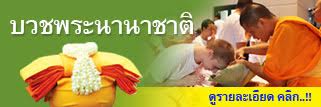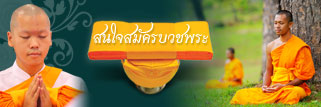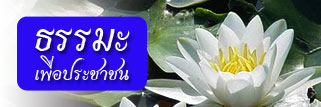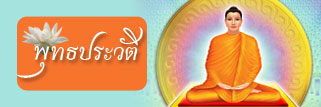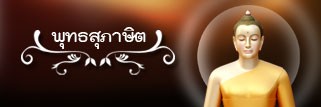Blessing Nine:
Artfulness in Usage
B. DEFINITIONS
B.1 Definition: Artfulness in Usage
The root of the Pali word for ‘artfulness in usage’ or ‘discipline’ is ‘vinaya’ comes from two stems ‘vi’ and ‘ney’. ‘Ney’ means something that leads you. ‘Vi’ can mean any of three things: ‘good’, ‘revealed’ or ’different’. Thus in compound the definition of the word ‘vinaya’ means ‘leads you to good’ or ‘leads you to brightness’ or ‘leads you to something different’. Leading one to goodness, means that it takes you away from evil. Leading one to revelation means that it allows us to see a person as they really are. Leading one to be different means that it raises one above people in general.
The actual meaning of the word is ‘rules or regulations to restrain ourselves in body and word to avoid causing suffering to ourselves or others’. Notice that ‘vinaya’ doesn’t restrain the mind directly, but in effect, it has a positive effect on the mind too because bodily action and speech originate in the mind. When we can avoid causing suffering to ourselves or others, we set ourselves on the path to goodness, revelation and difference from others in general. ‘Vinaya’ will be the virtue that tells us what is appropriate and inappropriate to do or say or look at or eat.
B.2 Definition: Self-Discipline
When people think of Precepts, they often mistakenly think that Precepts are nothing more than prohibitions. In fact the meaning of the Pali word for ‘Precepts’ i.e. ‘sīla’ means ‘the norm’ or ‘cooling’. Precepts mean the level of virtue that is normal for human beings to have. It is a norm that distinguishes men from savages or from animals. It is for this reason that we differentiate ‘vinaya’ from ‘sīla’ by calling the latter “self-discipline”. As we shall see “self-discipline” is the result of training yourself in “discipline”. It is a state of mind rather than a set of rules to follow.
B.3 The Difference between Discipline & Self-Discipline
Discipline is the means by which we restrain (the manifesting of) unwholesome actions and speech. When one is new to discipline, the mind is usually still reluctant. Many thoughts will go through the mind to protest at the inconvenience of behaving in a disciplined way. Such thoughts do not constitutea breach of discipline because they are not manifest. Apart from protecting the practitioner from degradation of behaviour into any of the Four Defilements of Action [kammakilesa], discipline will gradually channel the mind into the development of “self-discipline”. Self-discipline is the attainment of restraint of unwholesome thought as well as unwholesome action and speech. At this point there is no further reluctance in the mind any more. One has managed to be “a teacher to oneself” sufficiently well to be able to police one’s body, speech and mind without the need for any further rules or regulations to force such behaviours.
B.4 Different Types of Discipline
There are different sets of codes of conduct which can be used for training in discipline. Some are suitable for laypeople. Others are suitable for monks. They work on the principle of the “principle of limitation” because as Kierkegaard wrote in Either/Or: A Fragment of Life: Part One (1843):
“The more a person limits themselves, the more resourceful he becomes” (p.289-91)
In Buddhism, it is not by arbitrary rules that we limit ourselves — we choose rules that also ensure protection of the human dignity of ourselves, others and society — but it is true that the more intensive the level of practice, the more rules of training we tend to keep.
B.4.1 Discipline for Householders
B.4.1.1 Five Precepts
The Five Precepts [pañca-sīla] are the basic set of discipline advocated for every Buddhist. The Five Precepts are much older than Buddhism, but were adopted by Buddhism amongst many other religions as the core practice for moral conduct. Elements of the same principles are found in the Ten Commandments, Islamic Law and even Hindu practices. This is because the Five Precepts protect against a person taking advantage of the weaknesses of himself and others. There is nothing that people love more than their own life, their possessions, their spouse and trust. There is nothing that disables people more than the loss of their own clear conscience. These five weaknesses in human relationships are guarded by the Five Precepts. Such weaknesses are not exclusive to Buddhists, but apply for all people in the world, therefore the Five Precepts are the fundamental bedrock of all morality. The Precepts themselves consist of five rules of training:
1. Not to kill living beings
2. Not to steal
3. Not to commit adultery
4. Not to tell lies
5. Not knowingly to drink alcohol or consume intoxicants.
By keeping the Five Precepts people can ensure harmony for society and also prevent many of the roots of suffering. The Precepts bring coolness to the mind and body — there is no burning caused by suffering in body and mind as the result.
The Five Precepts share the same Pali word “pañca-sīla” as the five principles upon which Sukarno founded the Indonesian Constitution — but don’t go thinking that Indonesian Law is founded on Buddhist Principles because on closer examination, the five basic principles of the Indonesian Constitution turn out to be something else completely.
The Five Precepts are intended to be kept by Buddhist householders on a daily basis.
B.4.1.2 Eight Precepts
The Eight Precepts are a set of rules of training which expand on the Five Precepts with adjustment of the third and fifth precepts and addition of the sixth, seventh and eighth. The Precepts themselves consist of eight rules of training:
1. Not to kill living beings
2. Not to steal
3. Not to be uncelibate
4. Not to tell lies
5. Not to drink alcohol or consume intoxicants
6. Not to take meals between midday and dawn
7. Not to indulge in romantic entertainment or immodesty
8. Not to be indulgent in one’s sleeping habits
They are intended to be kept by Buddhist householders during times of intensified training, especially on meditation retreats or for self-purification on a periodic basis, such as one or twice a week. Eight precepts is sometimes called ‘uposatha-sīla’ where the Eight Precepts are kept for three days before, during and after one of the quarter moon days. The only real difference is the length of time one expects to keep them. The content is the same but for ‘uposatha-sīla’, usually, one will only keep them on the full moon days with the possibility of one day before for preparation and one day after for debriefing. For Eight Precepts the length of time the precepts are kept has no special duration.
B.4.2 Discipline for Monastics
B.4.2.1 Ten Precepts
The Ten Precepts are a set of rules of training which expand on the Eight Precepts with adjustment of the seventh precept and addition of the tenth. The Precepts themselves consist of ten rules of training:
1. Not to kill living beings
2. Not to steal
3. Not to be uncelibate
4. Not to tell lies
5. Not to drink alcohol or consume intoxicants
6. Not to take meals between midday and dawn
7. Not to indulge in romantic entertainment
8. Not to indulge in immodesty
9. Not to be indulgent in one’s sleeping habits
10. Not to handle gold or silver
They are intended to be kept by Buddhist novices on a daily basis
B.4.2.2 Two-Hundred & Twenty-Seven Precepts
As Buddhists train themselves as laypeople and as monks, Buddhist spiritual discipline can be divided into two parts accordingly: discipline for the homeless [anagāriyavinaya] and discipline for the householder [agāriyavinaya]. The monks have special discipline in keeping with their aim to reach an end of defilements within the shortest possible time. For the monastic community, eradication of defilements in the mind is intensive, so the self-discipline of monastics is intensive accordingly. The 227 Precepts are a set of rules of training which expand on the Ten Precepts. They are intended to be kept by fully-ordained Buddhist monks on a daily basis.

http://goo.gl/sf6d0








 พิมพ์บทความนี้
พิมพ์บทความนี้



